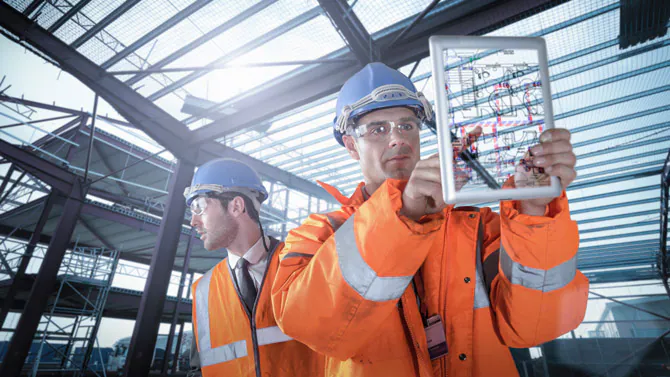An interview with PwC expert Robert Kammerer, talking about the role of ESG in modern infrastructure projects.
About Robert Kammerer: Robert Kammerer is a partner in PwC’s Risk Consulting practice and has over 20 years of experience in designing and improving business processes to meet legal and regulatory requirements. He has extensive experience in developing and managing global rollout programmes. He has participated in and managed several GRC integration projects in order to develop controls based on process risks and to establish suitable organisational structures to control those systems. He also leads several projects seeking to establish an ESG strategy and improve companies’ sustainability efforts.

What do you think about the role of ESG in modern infrastructure projects and why should companies focus on sustainability?
Robert Kammerer: Climate change will determine the future of infrastructure systems. Approximately 80% of global greenhouse gas emissions are caused by infrastructure.
ESG is a key element of modern infrastructure projects. It’s about striving for a balance between economic performance, environmental protection and social responsibility. Alternative building materials, recycling concepts and energy efficiency measures can make a contribution.
Kammerer: It is also important to guarantee safety standards, working time regulations and fair payment in the supply chain. Being sustainability-oriented has several advantages for companies. Sustainable companies create added value for society and the environment. They will become more attractive to clients, employees and investors, who are increasingly valuing sustainability. Sustainability initiatives offer companies a means of managing their risks and identifying opportunities, such as improving resource efficiency, reducing operating costs or accessing new markets. Sustainable companies comply with regulations and avoid potential penalties. Being sustainable will be the new profitable.
How do you support companies with ESG-related challenges in infrastructure projects?
Kammerer: We offer a wide range of ESG-related services for infrastructure projects throughout the life cycle of an infrastructure project, from planning to commissioning. This includes advice on ESG strategies and reporting, support with ESG impact risk and opportunity assessments, ensuring a sustainable and ethical supply chain, and designing and operationalising effective ESG governance structures. If necessary, we can also handle any greenwashing allegations.
What role does ESG reporting play in your work and why is it important?
ESG reporting is a central component of a company’s sustainability strategy. It enables transparent portrayal of sustainability performance and provides important information for internal and external stakeholders.
Kammerer: It systematically records, evaluates and communicates relevant environmental, social and governance data, which helps raise awareness of sustainability issues, manage risks, identify opportunities and – last but not least – ensure improved access to financing.
Additional interviews

Accelerating infrastructure projects
PwC expert Martin Zündorf explains how infrastructure projects can be accelerated.

Artificial intelligence in infrastructure projects
PwC expert Hendrik Reese explains the possibilities of AI and technology in infrastructure projects.
Contact us

Christian Elsholz
Partner, Capital Projects, Infrastructure & Real Estate, PwC Germany
Tel: +49 151 16770951

Rebekka Berbner
Partnerin, Capital Projects, Infrastructure & Real Estate, PwC Germany
Tel: +49 171 7836364








